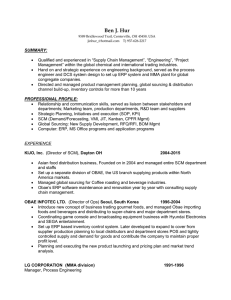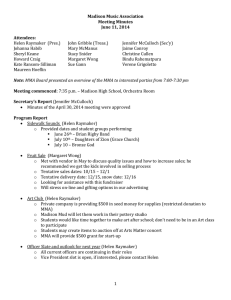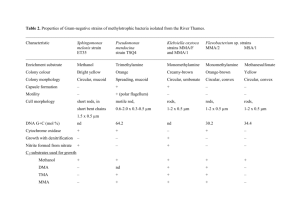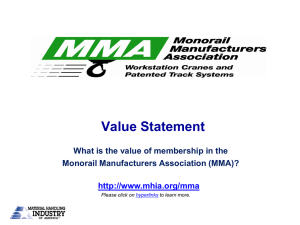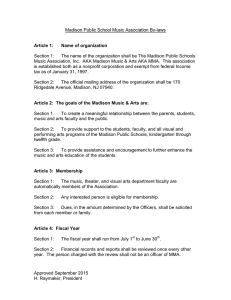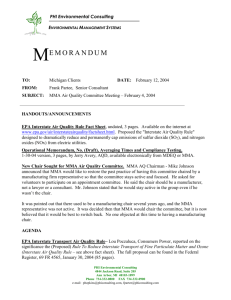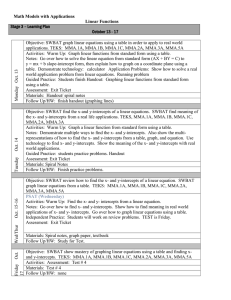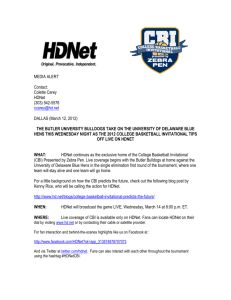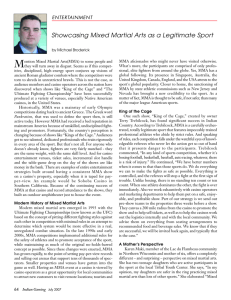File
advertisement
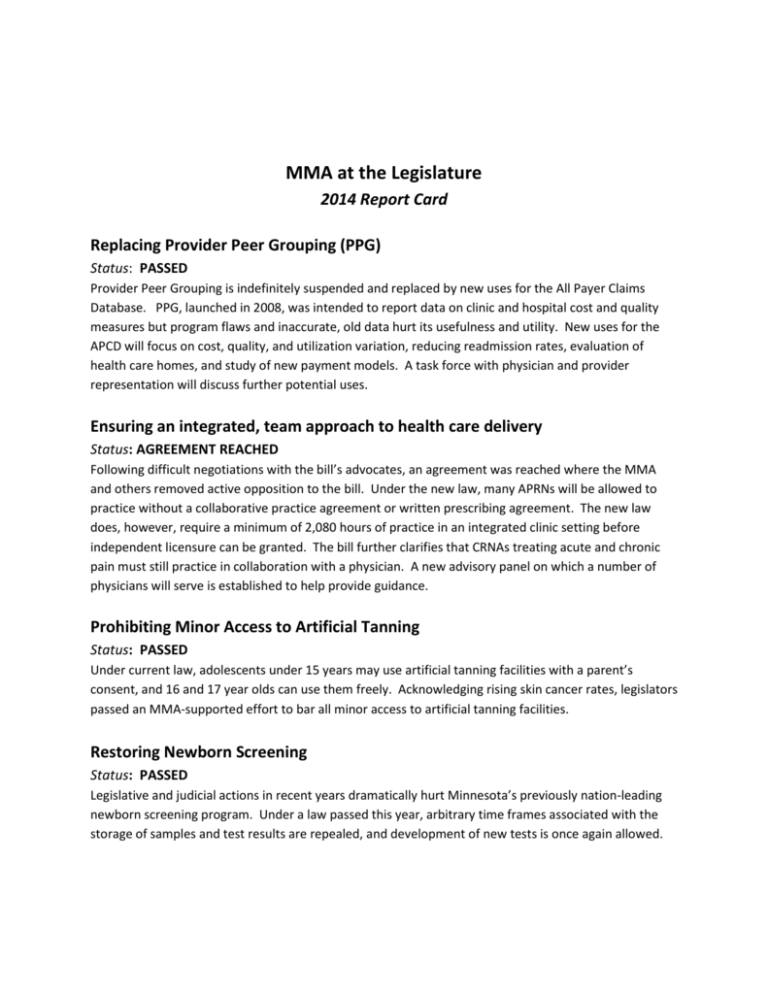
MMA at the Legislature 2014 Report Card Replacing Provider Peer Grouping (PPG) Status: PASSED Provider Peer Grouping is indefinitely suspended and replaced by new uses for the All Payer Claims Database. PPG, launched in 2008, was intended to report data on clinic and hospital cost and quality measures but program flaws and inaccurate, old data hurt its usefulness and utility. New uses for the APCD will focus on cost, quality, and utilization variation, reducing readmission rates, evaluation of health care homes, and study of new payment models. A task force with physician and provider representation will discuss further potential uses. Ensuring an integrated, team approach to health care delivery Status: AGREEMENT REACHED Following difficult negotiations with the bill’s advocates, an agreement was reached where the MMA and others removed active opposition to the bill. Under the new law, many APRNs will be allowed to practice without a collaborative practice agreement or written prescribing agreement. The new law does, however, require a minimum of 2,080 hours of practice in an integrated clinic setting before independent licensure can be granted. The bill further clarifies that CRNAs treating acute and chronic pain must still practice in collaboration with a physician. A new advisory panel on which a number of physicians will serve is established to help provide guidance. Prohibiting Minor Access to Artificial Tanning Status: PASSED Under current law, adolescents under 15 years may use artificial tanning facilities with a parent’s consent, and 16 and 17 year olds can use them freely. Acknowledging rising skin cancer rates, legislators passed an MMA-supported effort to bar all minor access to artificial tanning facilities. Restoring Newborn Screening Status: PASSED Legislative and judicial actions in recent years dramatically hurt Minnesota’s previously nation-leading newborn screening program. Under a law passed this year, arbitrary time frames associated with the storage of samples and test results are repealed, and development of new tests is once again allowed. Regulating E-cigarettes Status: PASSED While the MMA and many others supported a comprehensive indoor ban on their use, legislators took great strides to reduce exposure to these new, untested devices. New law bars the use of e-cigarettes in many indoor areas (including clinics, hospitals, government buildings, schools, and day care facilities). The law further imposes new regulations on the retailing of the products to prevent their use by minors, and requires that they be sold in childproof packaging. Fighting opioid abuse Status: PASSED Legislators took several steps to reduce the harm of opioids in Minnesota. Under new law, the Prescription Monitoring Program (PMP) will be able to better serve as a tool for prescribers by proactively sending reports of suspicious patient patterns. The law also allows a prescribers name to be included in the PMP record. Another law eases restrictions placed on first responders to allow them to carry and administer opioid antagonists to prevent overdose deaths. That law also includes several “Good Samaritan” provisions that provide some immunity to those who seek help for overdose victims. Ensuring provider tax repeal Status: ACCOMPLISHED No serious effort was put forward to extend the repeal of the provider tax beyond its current sunset date. The repeal remains on track for December 31, 2019. Aligning Minnesota’s data privacy laws Status: NOT HEARD While the MMA and its allies secured strong authors and bipartisan support for this proposal to ease sharing of clinically appropriate data among providers, the bill did not receive a hearing. Contact: Eric Dick MMA Manager of State Legislative Affairs edick@mnmed.org 612/362-3732
